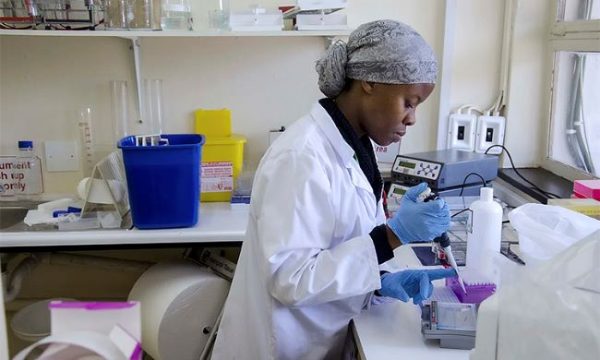Some scientists have blamed human errors, poor training, use of counterfeit or expired reagents, poor power supply, among others for wrong laboratory test results.
The scientists said such occurrences could be disastrous, leading to treatment, false alarm, waste of resources, in addition to other negative effects.
The Director-General, Nigerian Natural Medicines Development Agency (NNMDA), Prof. Martins Emeje said in spite of qualifications mistakes could happen.
“No matter how licensed a laboratory scientist is, it is possible to make mistakes, it could be error in labelling, error in wrong names, error of omission, they happen.
“It could also be as a result of contaminated reagents because lab tests or analysis are conducted using reagents and chemicals in addition to what we call reference standards.
“You can also have wrong results from substandard, fake reagents; just like we have counterfeit drugs, we also have counterfeit reagents.
“If you are using equipment that is old, equipment not sensitive or reliable which is what we call reproducible result, you can also have wrong results,’’ he said.
Emeje said that in medical laboratory science, equipment calibration was critical, adding that laboratories were always encouraged to undergo accreditation to be at par with internationally accepted standards.
According to him, using equipment for over five years without calibration could produce unreliable results.
“There is also the environmental factor. There is what we call laboratory condition; it has to do with the temperature, humidity of the lab and the general cleanliness of the lab.
“If you have a laboratory where the temperature is as hot as up to 40 degrees, you can’t get the best result from that lab.
“Many of these biological specimen or samples from human body respond to differences in temperature and the ambience of a lab is such a way that the biological specimen remains physiologically stable,’’ Emeje said.
The President, West African Network of Science Academies (WANNAS) and Presidthe ent of West African Academy of Sciences, Prof. Oyewale Tomori also blamed poor power supply for wrong laboratory results.
Tomori, also a virologist, said it was unfortunate that wrong lab results were rampant.
Unfortunately, Oyewale said, patients always bore the brunt of such wrong diagnosis while laboratory operators find ways to escape indictment when the errors occurred.
The Executive Secretary of the Nigerian Academy of Sciences (NAS), Dr Oladoyin Odubanjo said the training of a medical lab scientist was as critical to the treatment of a patient.
Odubanjo said the training of doctors allows them to identify errors in a lab result and as well approve results from some laboratories.
“Sometimes doctors insist that you do a test in a preferred lab because from experience bad results emanate from a particular lab.
“Laboratories should ensure their equipment are maintained regularly, follow standard operating procedures and documentation of patient’s information,” he said.
NAN


